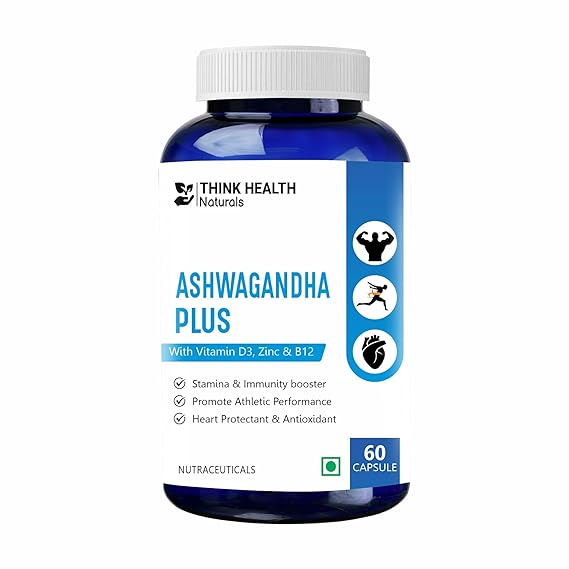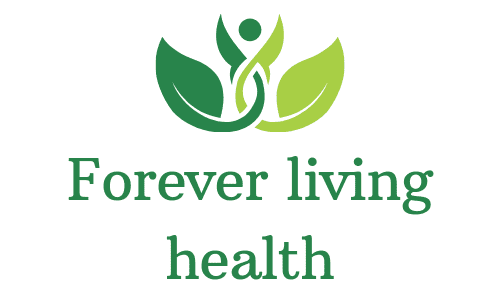Outline
- Introduction to Herbal Supplements
- Definition and Purpose
- Brief History
- Types of Herbal Supplements
- Herbal Teas
- Herbal Extracts
- Herbal Pills and Capsules
- Benefits of Herbal Supplements
- Health and Wellness
- Natural Ingredients
- Fewer Side Effects
- Popular Herbal Supplements
- Echinacea
- Ginseng
- Ginkgo Biloba
- Turmeric
- How to Choose the Right Herbal Supplement
- Research and Certification
- Consultation with Healthcare Providers
- Understanding Labels
- Potential Risks and Side Effects
- Interactions with Medications
- Allergic Reactions
- Overdose Concerns
- Herbal Supplements and Mental Health
- Stress and Anxiety Relief
- Improved Cognitive Function
- Depression Management
- Regulations and Safety Standards
- FDA Guidelines
- Quality Control Measures
- Incorporating Herbal Supplements into Daily Routine
- Dosage and Timing
- Lifestyle Considerations
- Myths and Misconceptions Surrounding Herbal Supplements
- Lack of Scientific Evidence
- Placebo Effect
- Dependency Issues
- Research and Studies on Herbal Supplements
- Recent Findings
- Areas of Interest
- Combining Herbal Supplements with Conventional Medicine
- Potential Benefits
- Precautions to Take
- The Future of Herbal Supplements
- Emerging Trends
- Integration into Healthcare Practices
- Conclusion
- Recap of Benefits and Risks
- Encouragement for Informed Decision Making
- FAQs
- Can herbal supplements replace prescription medications?
- Are herbal supplements safe for pregnant women?
- Can herbal supplements cure diseases?
- What should I do if I experience side effects from herbal supplements?
A Natural Approach to Health and Wellness
In today’s fast-paced world, more and more people are turning to natural remedies to support their health and well-being. Derived from plants and plant extracts, herbal supplements offer a holistic approach to health maintenance and disease prevention. In this comprehensive guide, we’ll explore the world of herbal supplements, their benefits, potential risks, and how to incorporate them into your daily routine.
Introduction to Herbal Supplements
Definition and Purpose
Herbal supplements, also known as botanicals, are dietary supplements made from plants or plant parts. These supplements can come in various forms, including teas, extracts, pills, and capsules. The primary purpose of herbal supplements is to provide additional nutrients or medicinal benefits to support overall health.
Brief History
The utilization of spices for restorative purposes goes back millennia, with antiquated developments like the Egyptians, Greeks, and Chinese saddling the recuperating properties of plants. Today, herbal supplements continue to be an integral part of traditional medicine systems worldwide.
Types of Herbal Supplements
Herbal Teas
One of the most popular forms of herbal supplements is herbal teas. These teas are made by steeping herbs, flowers, or roots in hot water, releasing their medicinal properties. Herbal teas are known for their soothing and relaxing effects and are often used to promote digestion, relieve stress, and boost the immune system.
Herbal Extracts
Herbal extracts are concentrated forms of plant compounds, usually obtained through a process of extraction using solvents like alcohol or water. These extracts contain higher concentrations of active ingredients and are commonly used in tinctures, syrups, or topical applications.
Herbal Pills and Capsules
For convenience and precision in dosing, herbal supplements are also available in pill or capsule form. These formulations typically contain dried herb powders or standardized extracts, making it easier for individuals to incorporate them into their daily routine.
Benefits of Herbal Supplements
Health and Wellness
Herbal supplements are prized for their ability to promote overall health and well-being. Packed with vitamins, minerals, and antioxidants, these natural remedies help support the body’s immune system, enhance energy levels, and improve vitality.
Natural Ingredients
Unlike synthetic drugs, herbal supplements are derived from plants and contain natural ingredients that are easily recognized and metabolized by the body. This natural approach to health care minimizes the risk of adverse reactions and promotes optimal health.
Fewer Side Effects
Compared to prescription medications, herbal supplements typically have fewer side effects and are better tolerated by most individuals. However, it’s essential to use them responsibly and under the guidance of a healthcare professional.
Popular Herbal Supplements
Echinacea
Echinacea is a flowering plant native to North America, known for its immune-boosting properties. Often used to prevent and treat the common cold, echinacea stimulates the immune system and reduces the severity and duration of cold symptoms.
Ginseng
Ginseng is a medicinal herb prized for its adaptogenic properties, which help the body cope with stress and promote overall resilience. This ancient remedy is commonly used to enhance energy levels, improve cognitive function, and support adrenal health.
Ginkgo Biloba
Derived from the leaves of the ginkgo tree, ginkgo biloba is a popular herbal supplement used to improve cognitive function and memory. It’s believed to increase blood flow to the brain, thereby enhancing concentration, focus, and mental clarity.
Turmeric
Turmeric is a radiant yellow flavor generally utilized in conventional Indian cooking and Ayurvedic medication. Rich in curcumin, a powerful antioxidant and anti-inflammatory compound, turmeric offers a wide range of health benefits, including pain relief, improved digestion, and enhanced immunity.
How to Choose the Right Herbal Supplement
Research and Certification
When selecting herbal supplements, it’s essential to do your research and choose reputable brands that adhere to strict quality control standards. Look for products that have been third-party tested for purity and potency and are certified by recognized regulatory bodies.
Consultation with Healthcare Providers
Before starting any new supplement regimen, it’s crucial to consult with your healthcare provider, especially if you’re pregnant, nursing, or taking medications. Your healthcare provider can offer personalized recommendations based on your individual health needs and potential interactions with other drugs.
Understanding Labels
Pay close attention to the labels of herbal supplements, noting the ingredients, dosage recommendations, and potential contraindications. Look for standardized extracts and avoid products containing fillers, additives, or artificial ingredients.
Potential Risks and Side Effects
Interactions with Medications
While herbal supplements are generally considered safe, they can interact with certain medications and affect their efficacy. For example, St. John’s wort, a popular herbal remedy for depression, can reduce the effectiveness of birth control pills and some HIV medications.
Allergic Reactions
Some individuals may experience allergic reactions to certain herbs or botanicals, resulting in symptoms such as itching, swelling, or difficulty breathing. If you have known allergies or sensitivities, it’s essential to read labels carefully and avoid products containing allergens.
Overdose Concerns
Although herbal supplements are natural, taking too much of certain herbs can lead to overdose or toxicity. It’s essential to follow the recommended dosage guidelines and avoid exceeding the recommended daily intake without consulting a healthcare professional.
Herbal Supplements and Mental Health
Stress and Anxiety Relief
Many herbal supplements are valued for their ability to promote relaxation and reduce stress and anxiety. Herbs like valerian root, chamomile, and passionflower have calming properties that help soothe the mind and promote restful sleep.
Improved Cognitive Function
Certain herbs are known for their cognitive-enhancing effects, helping to sharpen focus, memory, and mental clarity. By increasing blood flow to the brain and supporting neurotransmitter function, these herbs can improve cognitive function and overall brain health.
Depression Management
While herbal supplements are not a substitute for professional treatment, some herbs have mood-balancing properties that can complement traditional therapies for depression. Herbs like saffron, lavender, and rhodiola have been studied for their potential antidepressant effects
Regulations and Safety Standards
FDA Guidelines
Turmeric is a radiant yellow flavor generally utilized in conventional Indian cooking and Ayurvedic medication. However, unlike prescription medications, dietary supplements do not undergo the same rigorous testing and approval process. As a result, it’s essential to choose products from reputable manufacturers with a track record of safety and efficacy.
Quality Control Measures
To ensure the safety and quality of herbal supplements, manufacturers must adhere to good manufacturing practices (GMPs) and quality control standards. These practices involve rigorous testing of raw materials, in-process monitoring, and finished product testing to verify purity, potency, and safety.
Incorporating Herbal Supplements into Daily Routine
Dosage and Timing
For optimal results, it’s essential to follow the recommended dosage guidelines for herbal supplements and take them consistently as directed. Some herbs may be more effective when taken at specific times of the day or with food, so be sure to read the label instructions carefully.
Lifestyle Considerations
In addition to taking herbal supplements, maintaining a healthy lifestyle is essential for overall well-being. Be sure to eat a balanced diet, exercise regularly, get enough sleep, and manage stress effectively to maximize the benefits of herbal supplementation.
Myths and Misconceptions Surrounding Herbal Supplements
Lack of Scientific Evidence
One common misconception about herbal supplements is that they lack scientific evidence to support their efficacy. While more research is needed to fully understand the mechanisms of action and therapeutic benefits of herbal remedies, many herbs have been studied extensively and shown promising results in clinical trials.
Placebo Effect
Skeptics often dismiss the benefits of herbal supplements as merely a result of the placebo effect. While the placebo effect can influence individual perceptions of efficacy, many herbal remedies have demonstrated measurable physiological effects beyond placebo responses.
Dependency Issues
Contrary to popular belief, herbal supplements are not inherently addictive or habit-forming. However, like any dietary supplement or medication, it’s essential to use them responsibly and avoid relying on them as a sole solution for health concerns.
Research and Studies on Herbal Supplements
Recent Findings
In recent years, there has been a growing interest in the therapeutic potential of herbal supplements, leading to an increase in research studies and clinical trials. Emerging evidence suggests that certain herbs may offer promising benefits for various health conditions, including inflammation, cardiovascular disease, and neurodegenerative disorders.
Areas of Interest
Researchers are particularly interested in exploring the anti-inflammatory, antioxidant, and neuroprotective properties of herbs like turmeric, ginger, and green tea. These natural compounds have shown potential for reducing inflammation, oxidative stress, and cognitive decline associated with aging and chronic disease.
Combining Herbal Supplements with Conventional Medicine
Potential Benefits
In some cases, herbal supplements can complement conventional medical treatments and enhance their effectiveness. For example, certain herbs may help alleviate side effects of chemotherapy, improve insulin sensitivity in diabetes patients, or enhance the absorption of essential nutrients.
Precautions to Take
However, it’s essential to use caution when combining herbal supplements with prescription medications, as interactions can occur. Always consult with your healthcare provider before starting any new supplement regimen, especially if you’re taking medications for chronic conditions or undergoing medical treatment.
The Future of Herbal Supplements
Emerging Trends
As consumer interest in natural health solutions continues to grow, the market for herbal supplements is expected to expand rapidly in the coming years. Innovations in formulation, delivery systems, and quality control measures will drive the development of new and improved herbal products.
Integration into Healthcare Practices
With increasing recognition of the therapeutic potential of herbal supplements, healthcare providers are increasingly incorporating them into integrative medicine approaches. By combining the best of traditional and modern medicine, practitioners can offer patients a holistic and personalized approach to health and wellness.
Conclusion
In conclusion, herbal supplements offer a natural and holistic approach to supporting health and wellness. From immune-boosting herbs like echinacea to cognitive-enhancing botanicals like ginkgo biloba, there is a wide range of herbal remedies available to meet individual health needs. However, it’s essential to use herbal supplements responsibly and under the guidance of a healthcare professional to minimize risks and maximize benefits.
FAQs
1. Can herbal supplements replace prescription medications? While herbal supplements can complement conventional medical treatments, they should not be used as a substitute for prescription medications without consulting a healthcare provider.
2. Are herbal supplements safe for pregnant women? Pregnant women should exercise caution when using herbal supplements, as some herbs may pose risks to fetal development or pregnancy outcomes. It’s essential to consult with a healthcare provider before taking any herbal remedies during pregnancy.
3. Can herbal supplements cure diseases? While herbal supplements may offer therapeutic benefits for certain health conditions, they are not a cure-all for diseases. It’s essential to approach herbal supplementation as part of a comprehensive treatment plan that includes lifestyle modifications, conventional medical treatments, and ongoing monitoring by a healthcare provider.
4. What should I do if I experience side effects from herbal supplements? If you experience any adverse reactions or side effects from herbal supplements, stop taking the supplement immediately and consult with your healthcare provider. It’s essential to report any symptoms or reactions to your healthcare provider to determine the cause and appropriate course of action.




1 thought on “Herbal Supplements 2024”